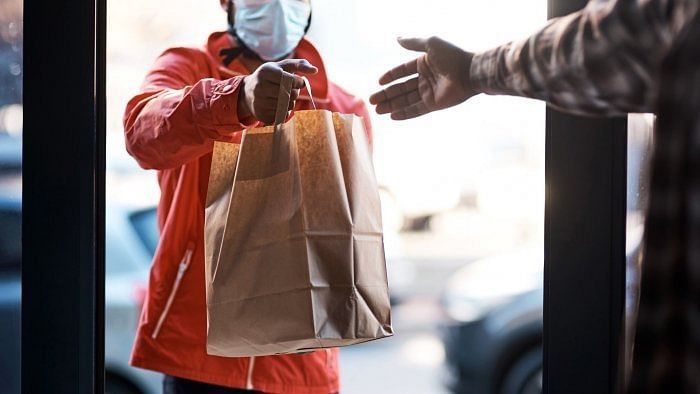
With unpredictable weather becoming a constant occurrence, consumer companies are adopting strategies that are climate-smart in a bid to risk-proof business, an Economic Times report has said.
To prepare for logistical and demand disruptions brought on by erratic weather conditions like unseasonal rains, intense heatwaves, and milder summers or winters, consumer companies are hiring weather forecasting agencies, in-house specialists, and data crunchers.
To guarantee that deliveries are not hampered, food delivery service Swiggy has partnered with an external weather forecasting organisation to anticipate climate conditions even on a hyperlocal level. Swiggy has also put a dedicated team to work ensuring its riders are informed on a real-time basis about the changes in weather conditions.
Zomato, which also owns the instant grocery delivery app Blinkit, has appointed a weather analyst and forecaster Navdeep Dahiya to provide its riders access to critical weather predictions. "To mitigate weather-related disruptions to business, we provide additional monetary incentives to delivery partners," a Zomato spokesperson told ET.
When it rains, those who make a minimum number of deliveries are eligible to participate in a contest and earn rewards.
“We have enabled lower drop distance so that delivery partners don’t have to cover lengthy distances during difficult weather,” the Zomato spokesperson said.
In addition to managing inventories and out-of-home consumption channels, weather-related challenges include making sure deliveries are made on time and effectively forecasting demand fluctuations.
“We observe inconsistent rain patterns even within smaller geographical clusters, so our riders need to be kept updated on a real-time basis,” a Zomato executive said. “During the intense heat waves and severe fog-like conditions, we follow the same strategy.”
Similarly, de-seasonalisation and shorter production cycles are used to manage inventories in heavily summer-dependent categories like soft drinks, ice cream, and air conditioners so that there are no unsold stockpiles resulting in losses.
James Quincey, the global chairman of Coca-Cola said in an earnings call on Wednesday that the company now follows “an all-weather strategy” with its bottling partners.
Quincey said that India's growth outlook remains unchanged, despite the market being negatively hit by unseasonal rains in the June quarter.